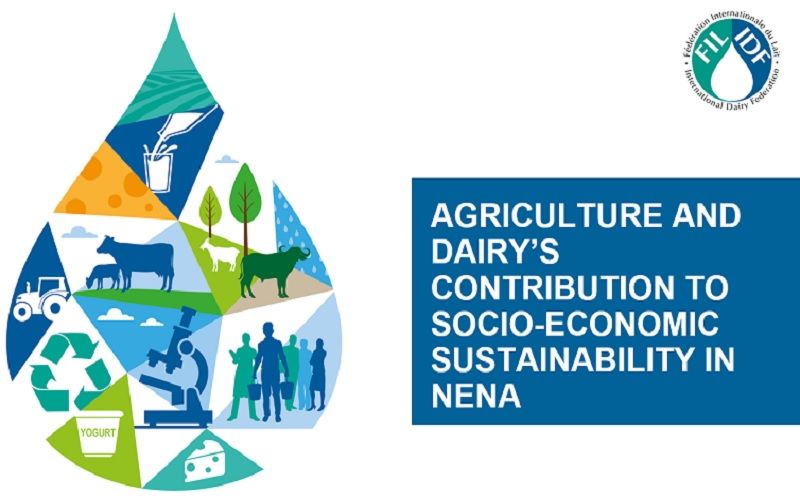Dairy Sector: A Driver of Sustainable Development, Food Security, and Global Cooperation

According to FAO and IFCN data, the dairy industry:
-
Provides nourishment to around 6 billion people,
-
Offers income sources for over 1 billion individuals,
-
Encompasses 150 million farms and 750 million workers involved in milk production.
IDF emphasizes that the dairy sector is not just a link in the agri-food chain, but a critical pillar of global sustainability, food security, and inclusive growth.
“It’s not only about calories — dairy delivers high-quality proteins, vitamins, and micronutrients essential for healthy development, especially in undernourished regions,” said Laurence Rycken.
Production and Consumption: Challenges and Trends
According to forecasts from OECD and Rabobank, global milk production growth will vary by region, with the highest activity in countries experiencing rising domestic demand and strong export potential.
The top 20 cow’s milk-producing countries in 2023 are shaping global trends — this data forms the basis for analyzing supply chain resilience and investment strategies.
As noted in the IDF World Dairy Situation Report 2023, both processed and fresh milk, when converted into milk solids, remain vital nutritional components in the majority of countries worldwide.

Regional Focus: NENA and the Challenges of Arid Lands
As Laurence Rycken noted, the Middle East and North Africa (NENA) region is facing serious environmental threats: 86% of the land is affected by degradation and desertification, putting the living conditions of 410 million people at risk.

IDF Highlights Potential for Sustainable Recovery through Ecosystem Restoration Investments
IDF notes the potential for sustainable recovery through investment programs focused on ecosystem restoration, including addressing water scarcity, climate change, and declining agricultural productivity. The impact of plant diseases, such as Xylella fastidiosa, is especially severe on industries like grapes, citrus, and olives.
Global Principles of Sustainability and International Cooperation
Founded in 1903 and encompassing 40 countries that represent two-thirds of global milk production, IDF actively collaborates with international organizations, including FAO, Codex, WOAH, UNEP, ISO, and UNFCCC.
The organization creates a unified platform for the entire dairy sector — from farmers to governments — on issues like standards, scientific research, and dialogue on global challenges, ranging from food security to climate change and biodiversity.
Specific Initiatives and Areas of Focus
-
Supporting ISO Standards: Implementation of new standards for installing milking and cooling equipment.
-
IDF Publication on Heat Stress in Dairy Cattle: Expected in February 2025.
-
Development of Terminology for Mastitis and Somatic Cell Analysis in Goat Milk: Aimed at standardizing scientific approaches and improving product quality.
-
School Milk Programs: 210 million children across 104 countries receive dairy products through school programs. Liquid milk (98%), yogurt (48%), and cheese (32%) dominate these programs.
Recognition of Milk in International Nutrition and Sustainability Strategies
IDF played a key role in the signing of the Paris Declaration on Dairy Sustainability (2024), alongside FAO. The document outlines public, measurable, and phased commitments to achieve environmental goals, including participation in the Global Methane Reduction Initiative and Pathways to Dairy Net Zero.
Looking to the Future: Innovation and Inclusivity
The sector faces the paradox of rising demand amid environmental and resource constraints. However, as Laurence Rycken emphasized, the dairy industry remains innovative and resilient, with its success depending on the exchange of knowledge, scientific approaches, and expanded collaboration at all levels.
IDF urges all sector participants to join the global sustainable development agenda, sign the Paris Declaration, implement best practices and standards, and actively engage in dialogue across regions and sectors.
Gold Partners
- Al Ain Farms Group
- Imperial










